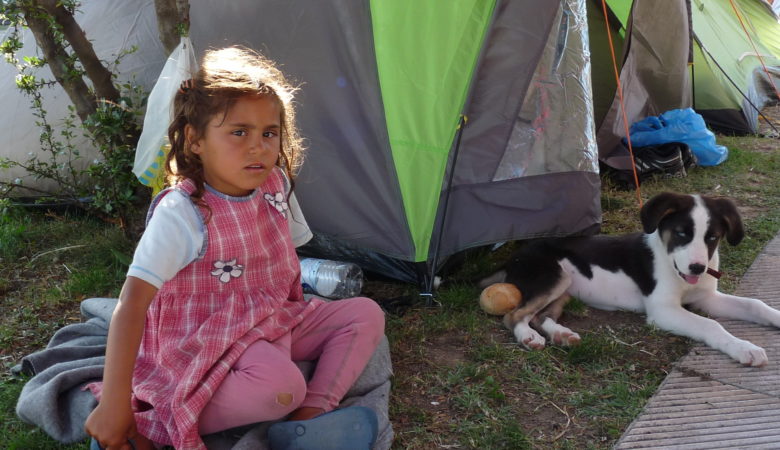Refugees: Your Property Rights Matter
On June 20 the Property Rights Alliance commemorated the 2020 World Refugees Day organized by the United Nations High Commissioner for Refugees (UNHCR). Every time refugees escape from their countries, they are forced to abandon their properties, such as a house, land, and personal items. Therefore, their property rights are at risk, or difficult to protect if not most of the time completely lost. As noted by Thomas Sowell: “Both free speech rights and property rights belong legally to individuals, but their real function is social, to benefit vast numbers of people who do not themselves exercise these rights.”
Every time refugees cross an international border to find safety during a crisis, they come under the protection of the UNHCR. Challenging political environments of host countries and uncontrollable conflicts have forced many refugees to stay for generations in camps that fall short of protecting their rights to own property. World Refugees Day reminds us that property rights are human rights protected by article 17 of UN Universal Declaration of Human Rights :“(1) Everyone has the right to own property alone as well as in association with others. (2) No one shall be arbitrarily deprived of his property.”
On the other side, internally displaced persons (IDP), even if they have not crossed a border to find safety, are on the run at home. A country at war has extremely limited resources to help displaced people, who are not protected under the UN. At least 79.5 million people around the world have been forced to flee their homes and there are nearly 26 million refugees, around half of whom are under 18. Displaced persons are challenged to finding shelter in displacement and after conflict ends, they may find their homes destroyed or occupied by others.
Venezuela’s refugee crisis is the worst Latin America has ever experienced. In the past 15 years, more than five million Venezuelans, equivalent to 16 percent of the population, have left their country. Colombia had shared the heavy burden of the influx of refugees fleeing Nicolás Maduro’s dictatorship. The country took measures for giving protection to refugees since the government of Juan Manuel Santos.
During the different stages of conflict – pre-conflict, mid-conflict, and post-conflict, there is some form of crisis within Housing Land Property (HLP) loss and abuse. Housing, land and property rights are fundamental human rights including the full spectrum of rights to housing, land and property assets, entitle displaced people to a safe home. HLP is a significant asset for those who have limited wealth and has a great significance for conflict management and loss of land after a disaster. Hernando de Soto rightly believes that the government must clearly and efficiently define and enforce specific private ownership rights.
Women and children are particularly vulnerable to human rights violations and homelessness.Hundreds of thousands of Iraqi women displaced by war remain unable to return to their homes facing systemic barriers that prevent them from claiming ownership of their property. The most well-known remedy for such violations is restitution. The UN Sub-Commission on Human Rights adopted this approach of Principles on Housing and Property Restitution for Refugees and Displaced Persons (often referred to as the Pinheiro Principles in honor of the Special Rapporteur who drafted them).
The “Guiding Principles on Internal Displacement”, although not legally binding, is a robust international standard dealing with internally displaced persons (IDPs). Restitution rights are legal means of discouraging territorial conquest and demographic manipulation. The guiding principles establish the state’s duty to restore to a person the particular property taken. If it is factually impossible to restore the property, compensation is a sufficient remedy.
Bosnia is an excellent example of how a coordinated approach by the leading international agencies can successfully monitor a restitution process led by domestic institutions. According to International Property Rights Index, Bosnia And Herzegovina’s IPRI score increased by 0.001 to 4.419 placing it 24th in the Central Eastern Europe.
HLP challenges have been sidelined for too long and the humanitarian community has come far, but not yet far enough. It is crucial to explore new holistic approaches to the legal and policy frameworks that embrace all necessary dimensions. We need measures of political certainty regarding housing, land, and property issues that will assist in providing political stability and restore peace and justice.
Building a Humanitarian HLP Platform focused on the matter of restitution, and determining the agency responsible of the foundations within the global humanitarian community, are essential. During displacement situations, all the competent authorities should provide remedies of involuntary removal of people and deprivation of their property rights. Records establishing legal rights in the property should be safeguarded in order to allow pre-conflict owners to exercise their rights.
A comprehensive approach, including both institutions that provide centralized administration and programs that support returning victims, will make return an appealing choice for victims. As stated by Friedrich von Hayek, Nobel Laureate, “The system of private property is the most important guaranty of freedom.”
If people feel secure about their property rights, they are free to invest in their future.
Photo Credit:Frantisek Trampota

